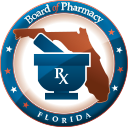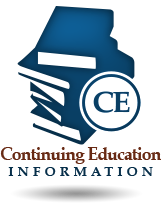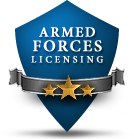Effective December 20, 2020, a consultant pharmacist shall successfully complete a course of no fewer than 20 hours approved by the Board of Pharmacy. The 40-hour evaluation and assessment under the supervision of a preceptor is no longer a requirement.
64B16-26.300 Consultant Pharmacist Licensure.
(1) No person shall serve as consultant pharmacist as defined in Section 465.003(3), F.S., unless that person holds a license as a consultant pharmacist.
(2) Application for consultant pharmacist licensure shall be made on form DOH-MQA 1109, (Rev. 12/15), Consultant Pharmacist Application and Information, which is hereby incorporated by reference, and which can be obtained from http://www.flrules.org/Gateway/reference.asp?No=Ref-06933 and the Board of Pharmacy, 4052 Bald Cypress Way, Bin #C04, Tallahassee, Florida 32399-3254, or from the website located at https://floridaspharmacy.gov/Applications/app-consultant-pharmacist.pdf. The application shall be accompanied by an application fee.
(3) In order to be licensed as a consultant pharmacist, a person must meet the following requirements:
(a) Hold a license as a pharmacist which is active and in good standing; and
(b) Successfully complete a consultant pharmacist course of no fewer than twenty (20) hours approved by the Florida Board of Pharmacy Tripartite Continuing Education Committee which is based on the Statement of the Competencies Required in Institutional Pharmacy Practice and covers the subject matter set forth in Rule 64B16-26.301, F.A.C. The course shall be instructionally designed to include a cognitive test on which the applicant must score a passing grade for certification of successful completion of the course.
(4) After licensure a consultant pharmacist’s license shall be renewed biennially upon payment of the fee set forth in Rule 64B16-26.1003, F.A.C., and upon completing twenty-four (24) hours of board approved continuing education based upon the provisions of Rule 64B16-26.302, F.A.C.
(5) The number of hours earned in recertification programs by a consultant pharmacist, if applied to the twenty-four (24) hours required for consultant pharmacist license renewal, may not be used toward the thirty (30) hours of continued professional pharmaceutical education credits as set forth in Rule 64B16-26.103, F.A.C.
64B16-26.301 Subject Matter for Consultant Pharmacist Course.
(1) Jurisprudence.
(a) Laws and regulations, state and federal, pertaining to institutional pharmacy and health care facilities.
(b) Laws and regulations, state and federal, pertaining to the safe and controlled storage of alcohol and other related substances, and relating to fire and health-hazard control.
(c) Laws and regulations, state and federal, pertaining to collaborative practice agreements.
(2) Policy and Procedures.
(a) Written procedures for outlining the medication system in effect.
1. Traditional systems.
2. Unit-dose systems.
a. Centralized.
b. Decentralized.
c. Automated medication systems.
3. Routine and emergency use of drugs.
4. After hours procedure for medication dispensing.
5. Managing drug shortages.
(b) Record keeping and reports.
1. Controlled substance control and record-of-usage.
2. Alcohol inventory and record-of-usage.
3. Patient drug use control and records.
a. Recalls.
b. Medication use evaluation.
c. Medication errors.
4. Drug charges, methods, accountability, and reports.
5. Statistical reports of usage, volume, etc.
6. Written collaborative practice agreement records.
(c) Regimen review, documentation and communication.
1. Performing drug regimen review.
2. Documentation of drug regiment review.
3. Communication of findings to appropriate individuals or groups.
(3) Administrative Responsibilities.
(a) Fiscal Control.
1. Perpetual and traditional inventory systems.
2. Application of EDP techniques.
(b) Personnel Management, orientation and training.
(c) Intra-professional relations pertaining to medication use.
(d) Inter-professional relations with other members of the institutional health care team.
1. Pharmacy & Therapeutic Committee.
a. Rational drug therapy; review of medication use and prescribing.
b. Formulary development – evaluation, appraisal, selection, procurement, storage, distribution, medication safety, criteria for use development and safety.
c. Automatic stop orders on potent and dangerous drugs.
d. Controls on storage and use of investigational drugs.
2. In-service education of nurses and other health-related personnel.
3. Infectious Disease Committee.
(e) Facility Review
1. Areas appropriate for evaluation
2. Documentation of evaluations
3. Reporting of evaluations
(4) Professional Responsibilities.
(a) Drug information retrieval and methods of dispersal.
(b) Development of pharmacy practice.
(c) Development of an IV Admixture service.
(d) Procedures to enhance medication safety.
1. Availability of equipment, technique, etc., to prepare special dosage forms for pediatric and geriatric patients.
2. Preparation of sterile dosage forms.
3. Proper writing, transcribing and initiating and/or transferring patient medication orders; development of physician’s chart order copy system.
4. Safety of patient self-medication and control of drugs at bedside.
5. Reporting and trending adverse drug reactions.
6. Screening for potential drug interactions.
7. Development and maintenance of up-to-date emergency kits.
(e) Maintain drug quality and safe storage.
1. Procedures for eliminating outdated drugs.
2. Requirements for safe and appropriate storage conditions.
(f) Maintain drug identity.
1. Procedures for labeling, transferring of bulk medications, etc.
2. Manufacturing and packaging procedures.
3. Pre-packaging control and supervision.
(g) Conducting patient assessments.
(h) Ordering and evaluating laboratory or clinical tests.
(i) Administration of medicinal drugs.
(5) The Institutional Environment.
(a) The institution’s pharmacy function and purpose.
(b) Interdepartmental relationships important to the institutional pharmacy.
(c) Understanding of scope of service and in-patient care mission of the institution.
(d) Special training with respect to the operation of nursing homes and Extended Care Facilities (ECF)/pharmacy relationship and special procurement procedures.
(6) Nuclear pharmacy.
(a) Procurement.
(b) Compounding.
(c) Quality control procedures.
(d) Dispensing.
(e) Distribution.
(f) Basic radiation protection and practices.
(g) Consultation and education to the nuclear medicine community; including patients, pharmacists, other health professionals, and the general public.
(h) Research and development of new formulations.
(i) Record keeping.
(j) Reporting adverse drug reactions and medication errors.
(k) Screening for potential drug interaction.





